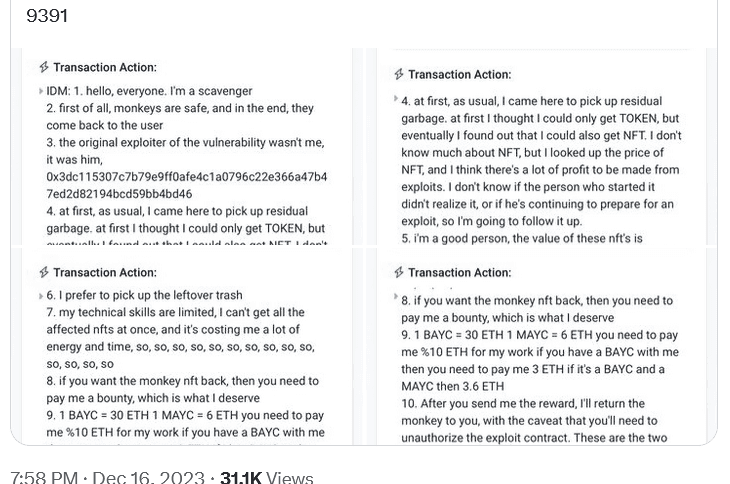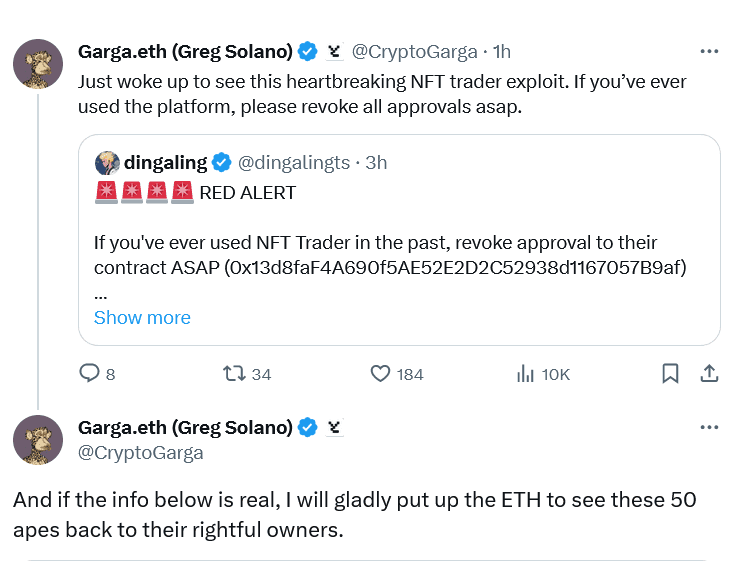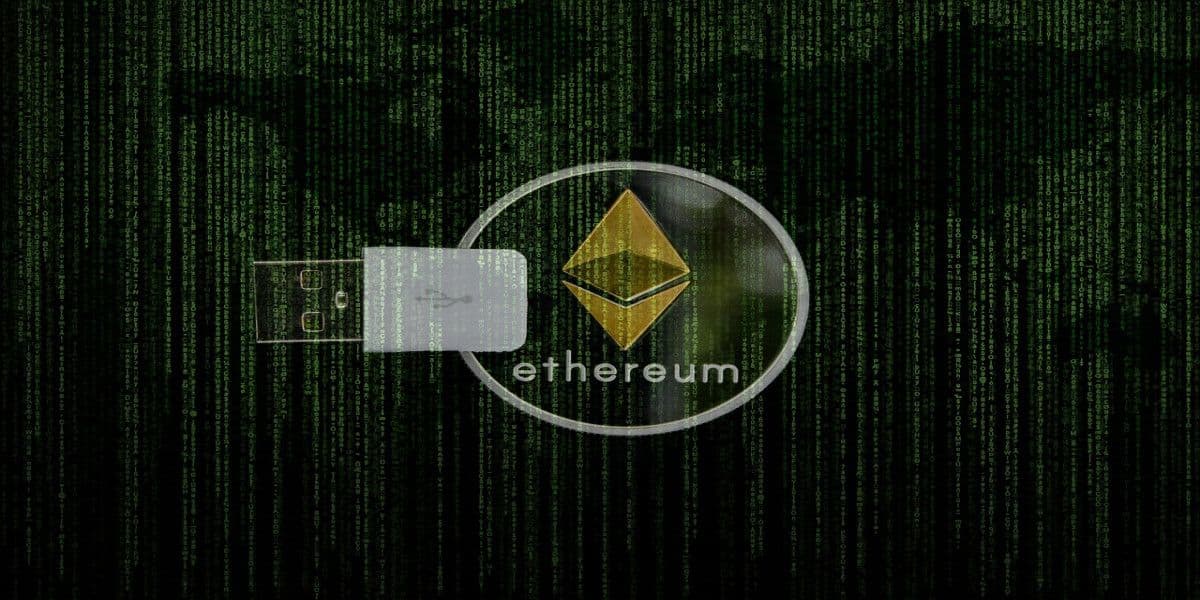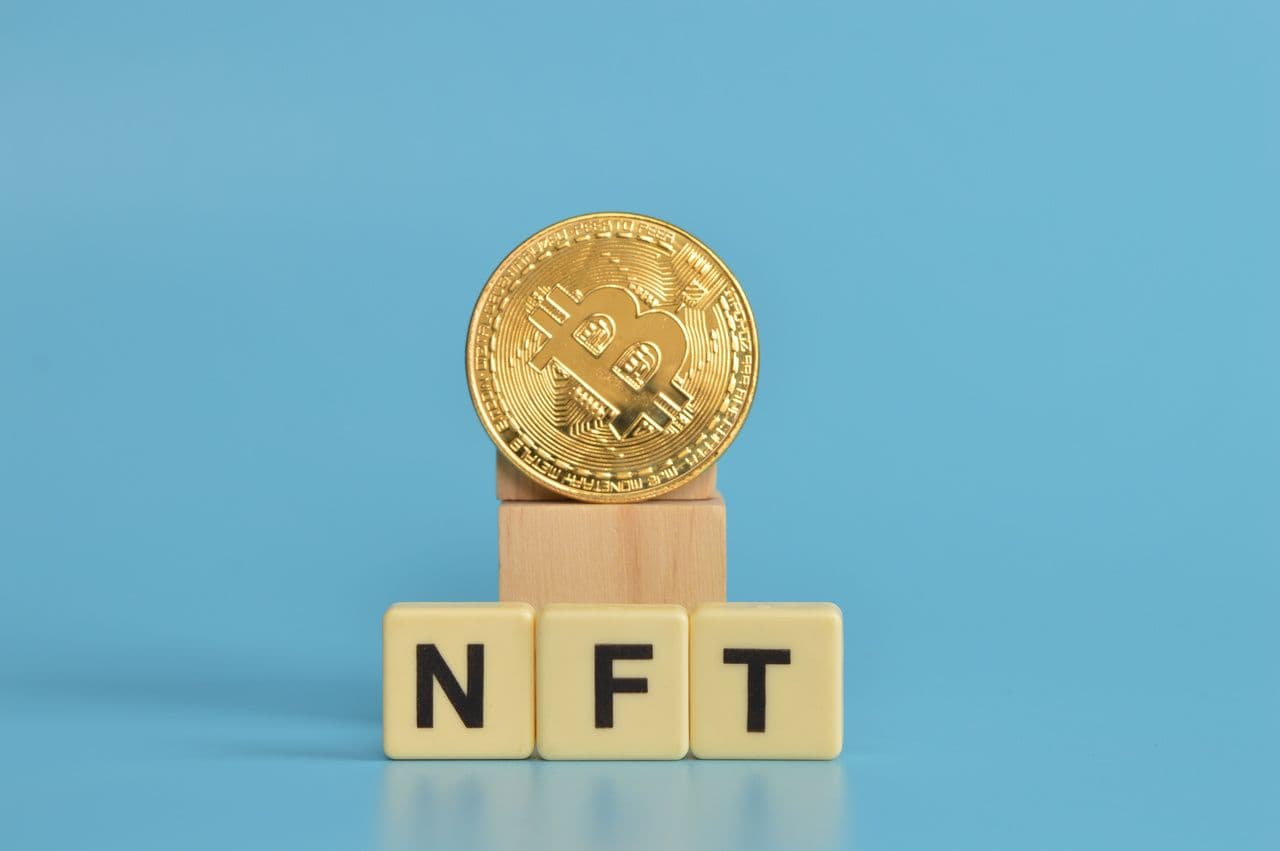BREAKING NEWS: NFT Trader Hit in Largest NFT Hack to Date?
NFT Trader Hit in Largest NFT Hack. Let's take a look at this in more detail as the NFT community is grappling with the profound impact.

A Digital Nightmare Unfolds
In the rapidly evolving world of Non-Fungible Tokens (NFTs), a red alert has been sounded, signaling the occurrence of the biggest hack in NFT history. The aftermath of this digital heist has left the community in shock and uncertainty, with millions of dollars worth of NFTs stolen. The perpetrator, shrouded in mystery, is demanding bounties for the safe return of the stolen digital assets. In this article, we’ll explore the unfolding saga, shedding light on the extent of the hack and its repercussions.
The first signs of the massive NFT heist emerged when a Twitter user issued a red alert to the community. Users who had previously utilized NFT Trader were urged to immediately revoke approval to their contract with the address 0x13d8faF4A690f5AE52E2D2C52938d1167057B9af. The hacker’s target included 37 Bored Ape Yacht Club (BAYC) and 13 Mutant Ape Yacht Club (MAYC) NFTs, which were swiftly drained to the address 0xC310e760778ECBca4C65B6C559874757A4c4Ece0.
Insights into the Heist: A Targeted Approach
- 1. Scale of the Theft: The scale of this digital heist is unprecedented, with millions of dollars worth of NFTs, including some of the most valuable apes worth over $300,000 each, being pilfered.
- 2. Targeting NFT Trader Users: The hacker seems to have focused on individuals who had engaged in trades on NFT Trader in the past and still maintained permissions on the relevant wallets.
- 3. Affected Assets: The primary assets affected include BAYC, MAYC, World of Women (WoW), and other older high-value assets. Popular platforms like Blur, x2y2, and OpenSea swap are now being used as common vehicles for unauthorized swaps.
Timeline of the Heist: A Rapid Escalation
- Initiation of the Attack: The hacker commenced the assault approximately four hours ago, initially taking a couple of apes and promptly selling one before escalating the theft.
- Continued Theft: Despite the initial red flags, the hacker persists in the theft, with reports of two more mutants being stolen recently.
Hacker Demands Bounty: The Ethical Dilemma in NFT Recovery

In a surprising turn of events, the hacker responsible for the unprecedented NFT heist has surfaced, presenting a unique proposition to the affected community. The hacker, identified as 0x3dc115307c7b79e9ff0afe4c1a0796c22e366a47b47ed2d82194bcd59bb4bd46, has made a bold statement, demanding a bounty for the safe return of the pilfered NFTs. This development raises ethical questions and introduces a complex dynamic to the ongoing NFT saga.
The Hacker’s Perspective: Unveiling Motivations and Skills
In a series of messages, the hacker introduces themselves as a scavenger, emphasizing the safety of the monkeys and distancing themselves from the initial exploit. The hacker’s exploration began as a search for residual garbage but evolved into a realization of the lucrative potential of NFT exploits. Despite claiming to be a “good person,” the hacker expresses a preference for scavenging leftover trash, hinting at an unconventional moral compass.
Technical Limitations and Energy Investment: A Hint of Struggle
The hacker reveals limitations in their technical skills, acknowledging the challenges of retrieving all affected NFTs simultaneously. This admission provides insight into the hacker’s efforts, highlighting the considerable energy and time invested in the ongoing exploit.
The Bounty Demands: Calculated Returns for an Unconventional Task
With a seemingly business-like approach, the hacker establishes a price for NFT redemption. Demanding 3 ETH for a Bored Ape Yacht Club (BAYC) and 0.6 ETH for a Mutant Ape Yacht Club (MAYC), the hacker justifies this as a rightful reward for their work. The hacker proposes a 10% fee, creating a complex pricing structure based on the type and combination of NFTs.
The Quandary: Balancing Ethics and NFT Ownership
Affected users now face a moral quandary – whether to entertain the hacker’s demands and regain ownership of their cherished NFTs or stand firm against supporting criminal activities. The hacker’s condition to unauthorize the exploit contract further complicates the decision-making process, forcing users to weigh the value of their digital assets against ethical considerations.
As the NFT community grapples with this unorthodox approach to asset recovery, the hacker’s demands add an unexpected layer to the unfolding narrative. The resolution of this ethical dilemma remains uncertain, leaving affected users in a delicate position as they navigate the intricate web of crypto negotiations and moral choices.
Immediate Action Required: Users Advised to Revoke Delegation to Compromised Addresses
In a sobering announcement, NFT Trader has confirmed that their old smart contracts have fallen victim to a cyber attack. The platform urgently advises users to take immediate action by removing delegation to the compromised addresses through the Revoke.cash platform. The affected addresses, 0xc310e760778ecbca4c65b6c559874757a4c4ece0 and 0x13d8faF4A690f5AE52E2D2C52938d1167057B9af, are specifically highlighted as part of the security measures.
This precautionary step is crucial to prevent any further unauthorized access or exploitation of NFTs associated with these addresses. The NFT community is urged to act swiftly and diligently in response to this security breach to mitigate potential risks and safeguard their digital assets.
Revoke.cash Exploit Checker: In response to the ongoing threat, a crucial tool in safeguarding NFT assets is the Revoke.cash Exploit Checker. Users are advised to utilize this resource to verify their security status and ensure that they have successfully revoked approvals to the compromised NFT Trader contract. This step is imperative to safeguard assets and prevent any potential unauthorized transactions.
As the NFT community grapples with the unfolding events, staying informed and taking proactive measures to enhance security becomes paramount. The NFT Trader exploitation serves as a stark reminder of the evolving challenges in the digital asset space and the collective responsibility to fortify the foundations of decentralized ecosystems.
Unexpected Twist: Hacker Begins Returning NFTs for Free?

The hacker sending back WOW for free
In a surprising turn of events, the hacker responsible for the massive NFT heist has taken an unexpected step by voluntarily returning a World of Women (WOW) NFT for free. The transparency of the transaction can be verified on the Ethereum blockchain through the provided link This move raises intriguing questions about the hacker’s motives and whether this is a gesture of goodwill or part of a larger strategy.
The first ape is also back
Following the free return of WOW, the hacker has continued to reverse their actions by sending back the first Bored Ape Yacht Club (BAYC) NFT without any payment from the victim. The Ethereum transaction details can be explored through the link. This development introduces a sense of unpredictability to the ongoing saga, leaving the community both surprised and uncertain about the hacker’s intentions.
The hacker also returned VFT
The trend of NFT returns continues as the hacker extends the gesture to include a VFT. The corresponding Ethereum transaction can be traced through the link. This unexpected act challenges the initial assumption that the hacker was solely driven by financial motives, adding complexity to the evolving narrative.
Is the individual responsible for the cyber attack a female?

Adding a personal dimension to the unfolding story, the revelation that the hacker is identified as a girl emerges in the latest information. The associated Ethereum transaction details can be found here. This disclosure introduces a new layer of intrigue and prompts further speculation about the hacker’s motivations and the potential impact of this revelation on the ongoing negotiations and ethical considerations within the NFT community.
BAYC Founder’s Initiative Steps In to Pay 10% ETH Bounty for Ape Returns

In a remarkable turn of events, the founder of Bored Ape Yacht Club (BAYC), known as Garga, has stepped forward to address the ongoing NFT heist crisis. Garga has made an offer to pay the demanded 10% ETH bounty in an effort to facilitate the return of the pilfered BAYC apes to their rightful owners.
The offer from Bored Ape Yacht Club (BAYC) founder Garga to pay the 10% ETH bounty signifies a commendable effort to retrieve the stolen apes and alleviate the impact on affected users. Yet, the concern centers around the argument that prioritizing robust security measures should take precedence over meeting the hacker’s ransom demands.
By paying the bounty, there is a potential risk of sending a message to cyber attackers that exploiting vulnerabilities can lead to financial gain, potentially encouraging similar malicious activities in the future. This viewpoint emphasizes the importance of reinforcing cybersecurity infrastructure and implementing preventive measures to safeguard the integrity of NFT platforms, ensuring the long-term resilience of the digital asset ecosystem against such threats.
The unfolding chronicle of the recent NFT Trader hack is a stark reminder of the vulnerability within the digital asset space. As the community grapples with the aftermath of this unprecedented event, the connection is drawn back to the ledger hack just two days prior. The gravity of the situation becomes even more apparent when one envisions a scenario that what if the ability to revoke permissions is compromised?. The interconnected nature of these incidents highlights the need for heightened vigilance and reinforced security measures across the entire blockchain ecosystem. The implications of such hacks extend beyond individual platforms, emphasizing the collective responsibility to fortify the foundations of decentralized technologies.
Conclusion: A Tragic Turn of Events
The NFT community is grappling with the profound impact of this unprecedented heist, described as truly tragic and heartbreaking. The quest for the safe return of the stolen assets continues as the NFT world comes to terms with the magnitude of the incident.
As the story unfolds, the hunt for the hacker and efforts to secure the stolen NFTs intensify, leaving the community on edge and reinforcing the need for enhanced security measures in the burgeoning world of digital assets.





























